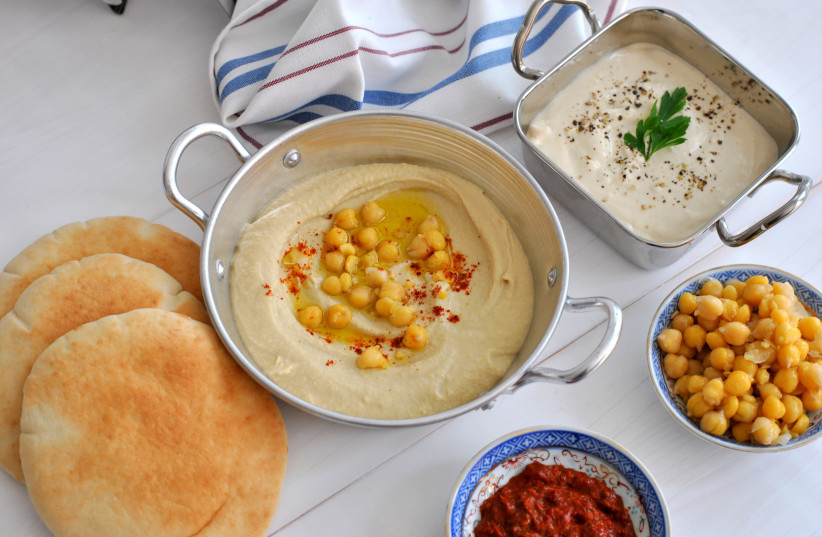Last week, The New York Times published an article titled “Preserving a Palestinian Identity in the Kitchen”. The article goes into detail about a quickly disappearing Palestinian culinary history that is either fading away or being rebranded as Israeli. This, of course, is not rooted in facts and touches on a trend by Palestinian and anti-Israel activists that can only be considered as creepy.
To make the claim that any food, be it hummus, falafel or kubbeh, is inherently one culture or another is doing a disservice to the generations who have honed and preserved those recipes. More so, claiming that one group is trying to co-opt such recipes for personal or political gain is nothing short of working to deny their own collective identity and history. Let’s, for example, look at a few foods that have become staples in Israeli society and that certain activists claim are Palestinian and stolen by Israel.
Falafel, a fried chickpea ball, is most commonly thought of to originate in Egypt. Shakshuka, the quintessential Israeli breakfast, was first made in Tunisia. Zhug, a Yemenite hot sauce, is from Yemen. Kubbeh is a dough ball with meat, originating from Iraq.
These are just a few foods that many people now associate with Israel but were originally made in neighboring countries.

How did they end up on Israeli plates?
Following the foundation of modern Israel, the neighboring Arab countries, such as Egypt, Tunisia, Yemen, and Iraq, instituted policies and engaged in actions that forced the millions of Jews who had lived there for thousands of years to flee and find refuge in Israel. While many of these Jews had built sizable fortunes and careers in these lands, they were forced to flee with just the clothes on their backs and the recipes in their minds.
You see, the generational yearning of Jews to reestablish sovereignty in their ancestral homeland did not prevent them from becoming integral parts of every aspect of society in the countries they lived in during Exile. In fact, in most of these countries, Jews held positions of power and influence in society. Surely, they included contributions to cuisine, as well.
SO AS they arrived in Israel, these foods that may have previously been considered Egyptian or Tunisian also became Israeli because these were recipes that Jews cooked and enjoyed for thousands of years. The cultural melting pot that is Israel enabled grandmothers, who had recipes passed down for generations, to share and remix those recipes from other countries to create the Israeli cuisine we know today.
Look no further than the personal website of Assaf Granit, the only Israeli chef to hold a Michelin star. On his website he writes, “my grandmother’s story is one that tells of the heritage of [Jerusalem] cooking... she learned to cook from her grandmother... the food she cooked came from the eastern European shtetl... when she came to Jerusalem she found herself in an entirely new world. Her neighbors came from all over the world and, like herself, received all their culinary education from their grandmothers... the woman next door was born in Morocco and taught her how to use saffron. A woman down the street came from Yemen and she taught her how to make malawah.”
This is the story of Israeli cuisine. A story of wandering, integrating and developing delicious recipes that were passed down from generation to generation. A story of a lost people returning home and meeting brothers and sisters from the world over with their own recipes and cultures, and sharing them. A story of a people working in unison to create a society and a culture that brings together the best parts of their exile to create a uniquely Jewish and a uniquely Israeli culinary culture. This is the story of Israeli cuisine, not the manufactured stories anti-Israel activists try to conjure.
This form of conjecture surpasses the age-old antisemitism and is a type of hate in its own class. It is a weird obsession with ensuring that the collective history of the Jewish people is erased in an effort to rid us of our land. It is an effort to deny the history of Mizrahi and Sephardi Jews, who lived for generations in harmony among their Arab neighbors, perfecting these classic recipes. It is racist and is rooted in nothing but hate.
Sadly, we are forced to respond to these accusations from our enemies, only because they are given large platforms to spread their vitriol. I hope going forward we can collectively work to silence these hateful and creepy voices that work tirelessly to undermine our history and identity.
The writer, a Jerusalem Post staff member, is an entrepreneur and Hebrew thinker, known as Osher in Hebrew. A recent oleh, he also helps to oversee the start-up ecosystem in Jerusalem with Made in JLM. On Twitter: @troyfritzhand.
